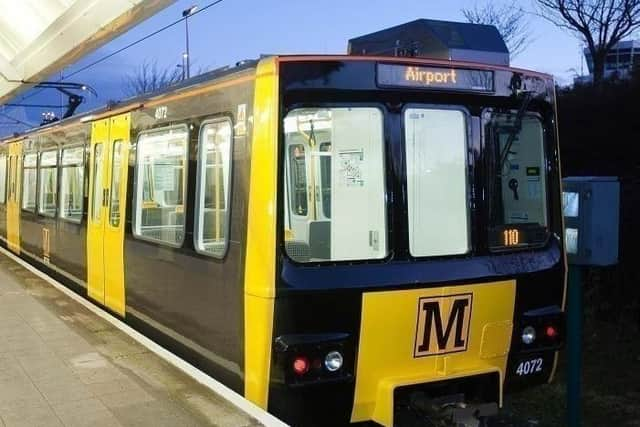Cost of living crisis set to hit the Tyne and Wear Metro, as operator Nexus predicts energy bills on the network could rise by up to £4 million
and live on Freeview channel 276
In yet another blow to the Metro’s finances after a devastating couple of years that have required multiple government bailouts to keep the system going, the cost of powering its trains has escalated dramatically.
Bosses at operator Nexus predict that the Metro’s high voltage power bills will come in a whopping £4 million higher than expected this year, a report has revealed.
Advertisement
Hide AdAdvertisement
Hide AdMetro passengers have already been hit with a rise in ticket prices of up to 9.5% this year in a bid to stave off cuts to frontline services, as public transport systems across the country face a continuing cash crisis.


Local councils also reluctantly agreed to up their funding to Nexus to help plug a £21 million black hole in its budget earlier this year.
Nexus, which would not confirm its total energy costs because of commercial sensitivity, said: “The cost of high voltage power which is used to operate the Metro system has increased significantly due to the volatility of the energy market.
“We are working to achieve the lowest possible price for our power supply in the year ahead, but it is still too early to predict what the extra cost will be.
Advertisement
Hide AdAdvertisement
Hide Ad“Nexus will be keeping this under constant review, as we will with all of our other costs, which, like all rail companies in the UK, are being affected by the cost of living crisis.”
Nexus is predicting an overall £10 million overspend of its original budget for 2022/23 due to the rising energy costs, as well as multiple other factors.
The rail operator has already spent or is expecting to spend:
*An extra £1.5 million on a new security team to combat a spate of violent and anti-social incidents on the network
Advertisement
Hide AdAdvertisement
Hide Ad*More than £2 million to protect bus services being cut by private operators
*£2.7 million to plug the gap between cost pressures caused by pay and contract prices rising and shortfalls in fare income
However, at this stage the publicly-owned organisation is still forecasting a balanced budget for the year, following the arrival of £7.3 million more in Covid relief funding from the government to help prop up services while passenger numbers remain at pre-pandemic levels.
A saving of more than £1 million has also been found after it emerged that Nexus had been overpaying on debt incurred in the extension of the Metro to Sunderland in 2002.
Advertisement
Hide AdAdvertisement
Hide AdHowever, Nexus is still planning to spend £5.6 million of its cash reserves to balance the books – a move which it has been warned is “not a sustainable long term solution” to the Metro’s financial woes.
The network is also braced for further disruption following the latest announcement of national rail strikes.
Although the industrial action confirmed by the Rail, Maritime and Transport union (RMT) will not directly affect Metro staff, the closure of Network Rail-managed tracks during the July 27 walkout is expected to mean trains will be unable to operate between Pelaw and South Hylton.
